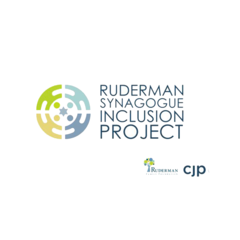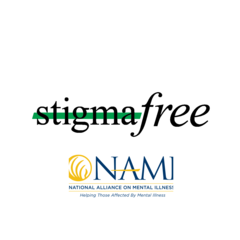ROSH HASHANAH 2006/5767
Shanah tovah! Shabbat shalom!
These very special days in the Jewish calendar, the Days of Awe, cause us to reflect on where
we have been and how we go forward in our lives. They bring us together—regardless of
where we are coming from. In this changing world, a world in which there is so much
instability and uncertainty, a world in which there is growing anti-Semitism, and escalating
threats to Israel’s existence, it feels even more important to be able to come together as
Temple Isaiah. And it is my privilege to serve as President of this special congregation.
How often do we read in the Torah, “And you shall be a holy people?” What does it mean to
be a holy people? One interpretation is that God chose the Israelites for a special purpose and
their holiness derives from their very being. Another view is that the people of Israel become
holy through their observance of God’s commandments. How does this apply to us in our
community? There is a spiritual, a sacred, component to what constitutes community for us,
one of shared values and beliefs, a common history, relationships that bind us together. As
such a community, we have a responsibility to each other and to ourselves to share our gifts
and to celebrate our stories.
In a few years, Temple Isaiah will celebrate its 50th anniversary. In mid-1959, 40 families
came together. There was no property on Lincoln Street, no beautiful sanctuary as we have
today but there was the essence of a synagogue. It is all about who inhabits the space, and
what values and beliefs bring them together. We have a very strong foundation on which to
build and move forward with our more than 800 households: the thousands of years of the
history of the Jewish people and the almost 50 years of the traditions and leadership of
Temple Isaiah. We are after all a community of memory. But different times bring different
challenges and require different structures, responses, and skills. Rabbi Lawrence Hoffman,
Professor of Liturgy, Worship and Religion at Hebrew Union College-Jewish Institute of
Religion in New York, notes in his book Rethinking Synagogues: “What the synagogue is—
its people and their relationships—constitute community. How the synagogue works—the
channels by which people communicate—constitutes the system. System determines
relationship. Community follows from system.” We at Temple Isaiah have been working on
the system in order to strengthen community.
Last year, the Congregation, after a significant study and work by a Board of Trustees
subcommittee, approved a reorganization of the Board, which reflects our mission and our
core values. Six areas of responsibility have been designated which also correspond to circles
of community within the larger community and six vice presidents now hold specific
portfolios: Worship reflects our spiritual community; Education, a community of lifelong
learners; Finance and Administration, an organizationally responsible community;
Programming, a Jewish community; Leadership and Community Development, a growing and
connected community; and Tikkun Olam, a just and kind community. These circles overlap
in responsibilities and constituencies, and in so doing foster collaboration, connection and
innovation.
We are, of course, in the early stages of implementation and recognize that much of what we
are attempting is a work in progress. We are shaping a new organizational culture which
distributes responsibility, broadens authority, and reflects the partnership between clergy and
lay leadership prevalent in Reform synagogues today. An early benefit of the new structure is
the opportunity to develop a leadership team to benefit the congregation—and dare I say, the
president. I envision many such teams working on specific tasks, solving problems, making
decisions. This allows the community to benefit from the talents and expertise of many of
you.
A part of the new structure was the creation of an ongoing Leadership Development Program.
We now have one—with the help of a dedicated team of congregants and consultants from the
Commission on Jewish Continuity and Education. I urge you to consider joining, if not this
year then a subsequent year. The initial program will be launched in December. We will start
small in terms of numbers but we have grand plans for what we want to accomplish over the
long term. The Program will stress communication and inclusion, team building and
community. It will build skills that will benefit both professional and personal development.
What distinguishes it from other such programs is its focus on leadership in a Jewish context.
We hope that this will mean that more of us will become involved in the Temple community,
in a variety of capacities, both small and large. But more important, this kind of program is of
intrinsic benefit to every one of us, in how we live our lives, at home and at work, in
volunteer roles across a broad spectrum.
This year we also have a new program of worship. In addition to our thriving Yom Shabbat
program, each month there will be a service appropriate for families, a music service and a
Torah service. Last week, Philip and I had the honor of holding up the Torah while it was
being read, a very special experience. We are continuing the successful Family Connection
Program in the high school. This year, parents of college students will join the sessions to
keep abreast of issues of concern to young adults. Our Social Action Committee is involved
in so many projects, but let me single out the Community Organizing Project and the
momentum, the excitement and empowerment, that have been established through its
collaboration with other synagogues and participation in assemblies of the Greater Boston
Interfaith Organization. Our Israel Action Committee has taken a leadership role in the local
area in support of Israel during these especially trying times, in establishing public forums, in
the press and in interfaith dialogue. These are only a few examples of how we are making
community here and elsewhere.
Let me close by expressing our gratitude to those who contribute so very much to this
community these days and every day. To our clergy: to Rabbi Jaffe, who earlier this month,
was honored by the Combined Jewish Philanthropies with its annual Rabbinic Award. We are
proud to share it with him. To Rabbi Brown who has become so integral a part of our
congregation, and is ever present in Social Action, especially the efforts in Darfur. Please
join us on Friday, October 13, the 7 o’clock erev Simchat Torah service, when the Aufruf, the
pre-wedding ceremony, of Rabbi Brown and Gregg Gardner will be held. To Cantor
Solomon, who, with his extensive musical gifts, is teaching us what a cantor can bring to a
congregation. His band Safam, with their Jewish American Sound, will be featured at the
Carey Yales Memorial Concert at Chanukah. To Rob Humphreyville and our choir whose
music and voices so enhance our services. To Betsy Herman, our dedicated administrative
director and her able staff who ensure the smooth functioning of the Temple on a daily basis.
To Ed Preciado, who is new to his role as Head Custodian, but not new to the Temple, for
getting our space in the best shape it has ever been. To Bruce Ward, his High Holiday
Committee and ushers, who with their superb organizational and logistical skills, tireless and
intensive work, ensure our spiritual well-being and personal safety during these important
days. To Abbe Smerling, whose excellent child care provides a High Holiday experience for
our youngest members. To the Board of Trustees, to all who have come before, and to all of
you, our wonderful congregation, who make Temple Isaiah the special place it is. I thank
you.
Rabbi Hoffman describes synagogues “as places where good deeds characterize the way
members treat one another and the way they reach out into the world.” By working together,
helping one another, being there for each other, we strengthen the community, other
communities and ourselves. Let us broaden our own circles to embrace the visitor, to
welcome the new congregant, to become acquainted with the congregant of longer standing
we do not know. Rabbi Abraham Joshua Heschel remarked: “When I was young, I liked
clever people; now that I am old, I like kind people.” With that said, perhaps we should all
try to be clever and kind.
From me to you, from my family to yours, shanah tovah! May it be a sweet year, a year filled
with good health and happiness, a year of peace and blessings for us all.
Laura Gordon Fisher





